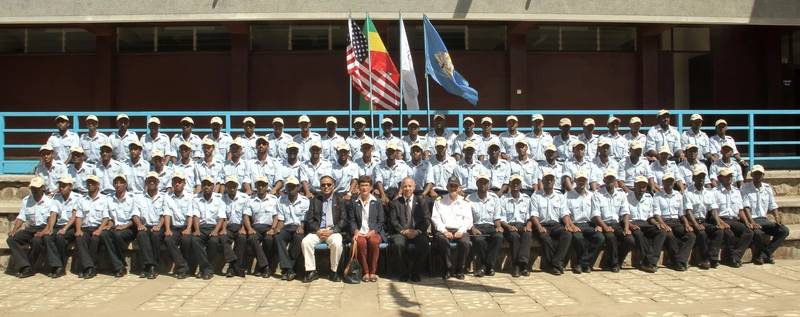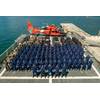US Visa Initiative for Ethiopian Seafarers

The Ethiopian Maritime Training Institute (EMTI) has welcomed an initiative by the United States that will provide Ethiopian seafarers with a new class of C1/D visas. The new C1/D visas issued to Ethiopian crewmembers will now be valid for two years.
Effective January 2015, the US extended the term period of C1/D visas for Ethiopian nationals, primarily for the purpose of facilitating transit to and from the US by the crews of merchant ships. During a recent visit to EMTI in Bahir Dar, the US Ambassador to Ethiopia, Patricia M Haslach, said, “The US has an old and cherished maritime heritage, and we are pleased and excited to help foster a maritime tradition in Ethiopia as well.” She added that Ethiopia has a growing number of good English speakers with solid technical skills who can ‘export’ their talents overseas.
The demand for Ethiopian seafarers has grown rapidly in recent years. As the exclusive marine officer training academy in Ethiopia, EMTI has graduated over 800 cadets to date. The academy is a partnership between Bahir Dar University and the US-based investment firm, YCF Group.
EMTI is one of the largest maritime training institutes in the world. It currently graduates approximately 500 cadets per year, and plans soon to expand its training program to include over 1,000 seafarers annually, ranging from ratings to engine and deck officers. After completing a rigorous training programme at the maritime academy, EMTI cadets begin their careers as junior crew members with leading shipping companies on a global basis.
Pini Shwartz, CEO of EMTI, says, “The establishment of the C1/D visa scheme in Ethiopia is a great testament to the growing demand and success of Ethiopian seafarers. It reflects the US government’s understanding that Ethiopians will continue to grow as an integral element in the shipping industry. More and more Ethiopian seafarers are sailing to and from US ports, and the US government recognizes that it must help trading companies with the logistical requirements of their crewing.”
Related News




